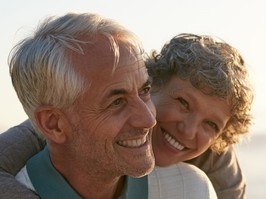what it feels like: 'being vulnerable is like a superpower' when living with psoriasis
reena ruparelia, a wellness coach and mindfulness guide, has overcome many emotional and physical hurdles to become an advocate for living with and managing psoriasis.

reena ruparelia, 42, a wellness coach and mindfulness guide in pickering, ont. was diagnosed with psoriasis at the age of 14.
supplied
imagine living with dry, scaly, red patches on different areas of your body that can develop at any point in your life. psoriasis is a common chronic skin problem where these surface areas can be itchy and painful, leading to joint stiffness and swelling. patients often experience challenges with sleep, mobility, getting dressed and other daily activities. why does it happen? the immune system, for unknown reasons, malfunctions and causes inflammation. white blood cells, also called t cells, in the immune system are triggered, directing the skin cells to rise to the skin surface and shed at 10 times the typical rate. these immature skin cells end up sticking together and build thick plaques and silvery scales, rather than maturing and flaking off as they should.
about one million canadians live with psoriasis and its negative effects of physical discomfort and often severe pain. because of the impacts on quality of life, patients are at higher risk of anxiety and depression. the canadian dermatology association reports that a canadian survey of 500 patients found that one-third saw their psoriasis as a barrier in their daily life.
there are other serious health problems associated with psoriasis, including increased risk for heart attack and stroke, diabetes, liver disease and cancer. most commonly, psoriasis can lead to arthritis in up to 30 per cent of patients. and while the cause is unknown, the condition has a genetic predisposition, with roughly one-third of patients having a family member with psoriasis. ongoing research points to a combination of contributing factors of genetics, the environment and the immune system.
advertisement
what is it like to live with? reena ruparelia, 42, a wellness coach and mindfulness guide in pickering, ont. talked to healthing about her diagnosis of psoriasis at age 14 and the rollercoaster of emotions that plagued her for years trying to hide her condition. ruparelia is also a director on the board of the canadian association of psoriasis patients, an advocacy and support resource for people living with psoriasis and their friends and families to help build community and access care. on her personal social media, she runs @psoriasis_thoughts to empower others with psoriasis to love and accept themselves as they are.
what led to your psoriasis diagnosis?
i was in england traveling and visiting family. and i noticed these red dots on my stomach. i hadn’t seen anything like that before on my skin. so i was a little concerned because it was the summer right before i was about to start high school. with all the clothes you want to wear, the new experiences, new friends, i was thinking, ‘oh my gosh, i need this to go away.’ but i noticed that these red dots were slowly starting to spread to my legs and my arms, but they just looked like little mosquito-type bites. so i went to the doctor when i got back from england and he looked at me and said, ‘reena, it’s just chickenpox, it’ll be gone in a couple of weeks.’
advertisement
but as the weeks went on, these red dots started to scale and turn a little bit more silver. they started to grow and join and spread. i’m so thankful there was no webmd at that point, because i would’ve been googling and using the internet for self-diagnosing. still, i was freaking out, so i went back and saw another doctor who told me i may have psoriasis. i didn’t know what that was. i didn’t even know how to spell it. again, i didn’t really understand that it could be family-related. i knew that my dad had eczema, but it wasn’t something he actually talked about. it wasn’t like a big thing in his life.

reena ruparelia says she doesn’t even remember the feeling of psoriasis when she was diagnosed at 14. “i was much more concerned about how it looked.”
supplied
the doctor said in order to get an official diagnosis, i would have to see a dermatologist. but the wait time to see a dermatologist is similar to how it is now, about three months to see a specialist. and by that time, school was starting and three months is a long time. i think he must have given me a cream or something for it, but i don’t remember. the psoriasis started to spread because it was basically left untreated. so that was a bit scary. i started my first weeks of school in tights and long sleeves in september, so it was a bit warm and underneath my clothes, it was spreading.
i thought when i see the dermatologist, i am going to be okay. they’re going to diagnose me, give me a pill or something, and then it’s going to go away. so the day came, i saw the dermatologist and he said, it’s psoriasis. there’s no cure, but there are ways to manage it. that was back in 1994, so there were very different options for treatment than we have now. my initial treatment was a uvb light to help prevent the skin from rapidly growing or accumulating. he paired that with coal tar which smells like mothballs. so i would apply that and then wrap my legs with saran wrap. then in the morning i had to wipe it off with cloths and it was just a gruesome process. it was like a greeny brownish paste that left a residue on the skin. you only use it at night, but it stains all your sheets. bless my mother, she helped me put it on every day and my dad would take me to get my uvb light treatment in the city. it was just a really hard time. that was the beginning, but at that point i was young and hopeful and i didn’t know anything about psoriasis, so i thought eventually after all this pain it’s going to go away. as the years went on, it was still there.
advertisement
did this early treatment help at all?
my psoriasis was itchy and kind of burning, but i don’t remember the sensations that well. i was so young and i was much more concerned about how it looked. now i’m in a very different place in terms of how i actually look at it. but at that point, i was worried about what other people would think. i’m sure it was itchy because that’s one of the biggest symptoms of living with psoriasis – it itches and burns and it cracks and it flakes.
i went back every three months or maybe every six months to the dermatologist. after a year he suggested i try a cortisone cream to slow down the scaling. so i did that for many years on and off. then i took some oral medications, starting with methotrexate. it’s still prescribed today. for me, it took away the psoriasis, but i couldn’t really tolerate the medication because it made me violently ill once a week or twice. it was so bad. i was like, ‘at least my skin’s clear, but i’m stuck in the bathroom for two days.’
i stayed on that medication for a few years, but my psoriasis always seemed to come back. eventually, every treatment i took, whether it was topical or oral medications at that point, even now, it all seems to come back. i always say, ‘it always comes back and it breaks my heart because you feel so happy when you go into remission or the skin responds to a treatment.’ the skin and the body is smart. it gets used to it and it starts expressing in psoriasis plaques. i did the best that i could, but i got to a point where i just got tired of treating myself and taking care of my skin. i just started just hiding.
advertisement
how did the diagnosis change your life? what was the emotional impact for you as a young woman?
it was lonely. i isolated myself. i did a lot of pretending because i never wanted my parents to worry. i didn’t want to burden them. they were already worried about my skin. and i didn’t want them to keep asking me about it. many people didn’t know i had it because i could hide it. it wasn’t on my face, my hands or my feet. so i could wear long pants and long-sleeve shirts and i could hide it. it made me very sad. i felt self-conscious and kind of hopeless. i think in many ways, i kept hoping that i would wake up one day and it would go away. i held myself back from doing things. i used to play a lot of soccer and figure skating and all these social things. i didn’t join any clubs at school. i became really depressed.
did psoriasis affect your working life as well?
in my late 20s, the psoriasis started to spread to my hands and my feet. i could no longer hide my skin condition, and hands and feet are very hard to treat because you’re always touching things and you’re re-injuring often, especially the hands. it was on my palms and all over my fingers. at this point, i was into my corporate career working in human resources, so i was meeting people applying for jobs and running training and orientations. there was nowhere for me to hide. i became very self-conscious. i kind of lost myself in work because i thought, ‘well, people can’t reject me at work because i have this, so they’re going to be nice to me.’ my employers were always very understanding. i was really good at my job and i cared about my job, but inside i was super-paranoid and depressed. i went to a meditation retreat and also took some mindfulness courses to help manage my stress at work. but what changed is that i could no longer hide it. i got to a point where i neglected myself. i stopped taking care of myself. as my skin got worse, i thought, ‘what’s the point of all this treatment?’
advertisement
my skin got so bad that i had to start wearing gloves and plastic wrap all the time. i couldn’t do much. i had this episode happen at work where i couldn’t even grip anything without my fingers cracking. i had a panic attack and ended up taking a disability leave from work. for me, this was rock bottom. i couldn’t really walk, i couldn’t wash my hair. i could hardly drive a car without wearing gloves. i wasn’t taking any treatment. i wasn’t eating anything to support my gut health or my skin health. i was not managing stress and i was in pain constantly. i felt like i was a runaway train going somewhere not good.
what got you moving forward with self-care and healing?
i remember lying in bed and looking on instagram. this is where things really changed because i had nothing else i could do except be on my phone. i started looking up psoriasis hashtags, like #psoriasis, #curepsoriasis and #psoriasisstory, whatever i could find. and i started seeing all these pictures of other people who also had psoriasis. i had never really talked about it with anybody. so i realized i wasn’t alone. people were sharing their story, they were sharing their treatment and what was going on with them. i had no clue that there were so many people sharing their pictures and stories. i felt there was hope for me, and i felt intrigued to start my own page and share my own journey.
advertisement
i wanted to share it more from a mental health perspective because i found that nobody was really talking about the psychological impact of the condition. but as i became more mindful and more aware, more compassionate, i started to think that maybe i could be nice to myself and i could do things to support my health. maybe i’ll go back to the dermatologist or a naturopath for help; maybe i’ll go for a massage and write in my journal. so i started sharing this journey on instagram and it was very powerful for me. i didn’t show my face at first. then i started sharing pictures of my skin with psoriasis. the connectedness and meeting other people made me want to take care of myself and be someone who could share my journey online. i started the page in june 2016. now it’s seven years later and i’m sharing my self-love and self-acceptance. i figured out ways to treat myself and heal to become a voice of support and inspiration for others.

i learned that being vulnerable is like a superpower, and that being vulnerable and open is what really connects me to others,” reena ruparelia says of her journey with psoriasis.
supplied
what treatment do you follow now?
i’m doing a number of things, but the thing that really helped me was going on a biologic drug injection that i get every three months. it’s been so amazing. i don’t feel sick, i don’t feel tired. i started the drug a year-and-a-half ago. since then, my skin is almost clear and i’m wearing clothes i’ve always wanted to wear. i’ve been able to do fun things. i’m not always leaving events early because my skin’s in pain. it used to be, ‘oh, you’re having a pool party? sorry, can’t make it.’ anytime i’d go out in the summer i wouldn’t wear sandals. i didn’t want everyone staring at me. my social anxiety was through the roof. now this is my second summer feeling good, out of all those summers since 1994. that’s a long time.
advertisement
i go to the gym, i do all these things that make me feel great. i eat well, i meditate, i get to teach and share my story. my life has completely changed and it all came from having community and being open. it’s very liberating. i feel like i’m such a different person than i was. i wish 14-year-old me could see me now. i wish i could go back and tell that version of myself, ‘it’s going to be okay reena.’
is there a message you have for people with this diagnosis?
you don’t have to do this alone. seek support, whether that’s through the canadian association of psoriasis patients or finding a dermatologist or a team of healthcare professionals that can be of support. if you have a counsellor or a therapist you can talk to as well as talking to your friends and family, that’s important, too. everybody’s path is going to look really different. but the more that we’re open and sharing, the better off we’re going to be in getting the treatment we need to or helping our skin by living better in the skin that we’re in. there are different ways to approach and treat yourself, and remission is possible.
i learned that being vulnerable is like a superpower, and that being vulnerable and open is what really connects me to others. i don’t need to pretend to be okay or hide my pain. so it’s been a very liberating journey.
 11 minute read
11 minute read





